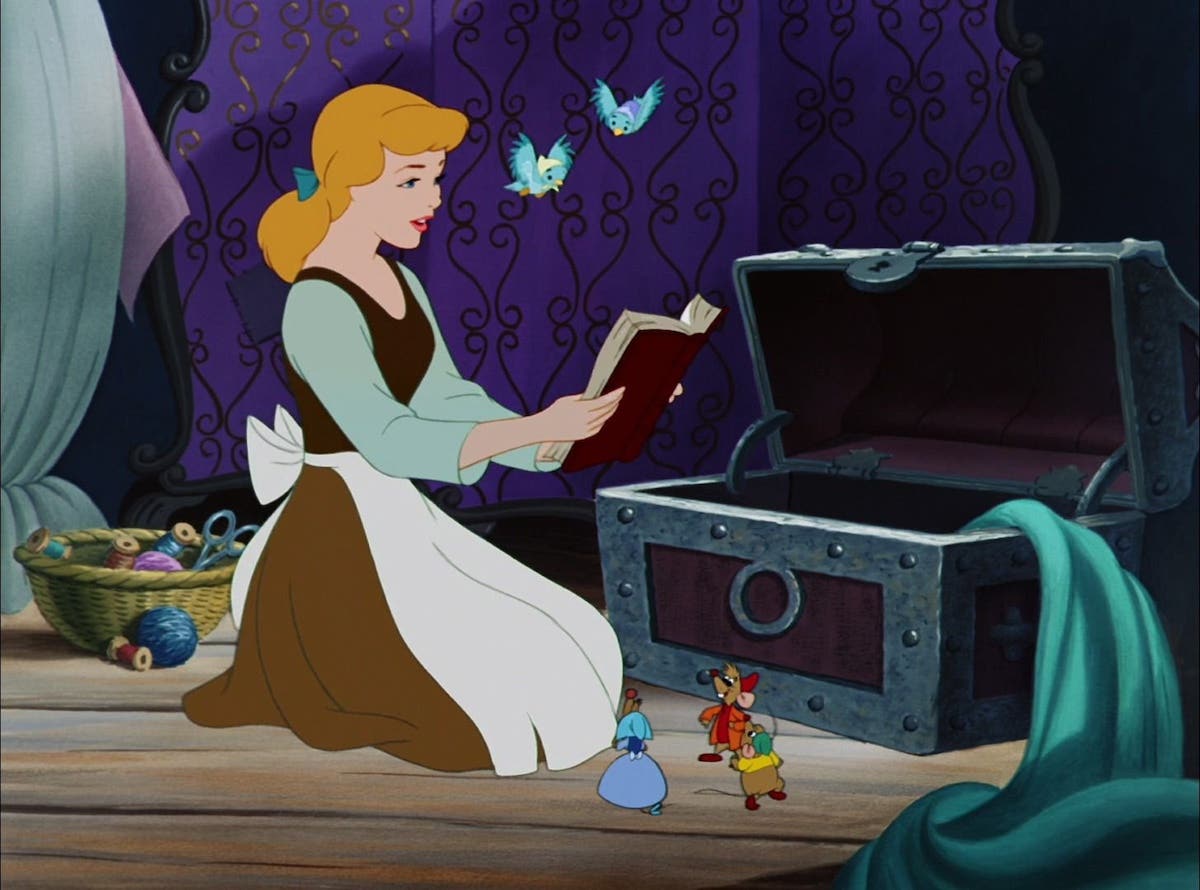PRIMETIME: Finding Your Voice… and a Chat with TV Exec/Author Jen Grisanti
“In order to get on a show as a staff writer, you must understand your voice. Your voice is your calling card as a writer. Your voice is what separates you from the masses.” – Jennifer Grisanti (TV consultant/author)
One of the things we talk about on this blog is how necessary it is for writers to gain life experiences to mine and exploit in their writing.
Gaining life experience doesn't necessarily mean spending years traveling the world or experiencing weird lifestyles; gaining life experience is about taking opportunities available to you and being willing to use those experiences-- and the emotions they create-- to tell stories.
It doesn't matter whether you're writing a heartfelt drama like The Kids Are All Right, a children's epic like Harry Potter, a sci-fi thriller like Neuromancer, or a TV comedy like Parks & Recreation. Each of these works is, in its own way, deeply and uniquely personal to its creator; each puts a few of its writer's most intimate thoughts into the world. This is what real writing is about... and until you're ready to do this-- whether you're a single parent living in your Idaho hometown or a world-traveled adventurer-- you will not succeed as a writer.
The problem is, of course: DOING THIS AIN'T EASY.
Many people spend their entire lifetimes putting words on paper... and avoiding going to the dark places within their souls. Some find the ability to do it only after a painful divorce, the death of a child, the loss of a job. Others only access those places with the help of drugs or alcohol.
Fortunately (and here's my brilliant transition into today's subject!)... a new book from TV producer and exec Jennifer Grisanti aims to make it a bit easier-- to help writers tap into the most personal parts of their lives, dredging up rich emotions and using them to spin powerful, moving stories.
Now, first of all-- a disclaimer: I've known Jen for years. I met her when she was running the Current Programming department at Spelling Television, overseeing shows like Melrose Place and Charmed. In fact, we first met when I went in for a writing gig on the final season of Beverly Hills 90210. Unfortunately, I didn't get the job... and I'm guessing/hoping Jen has spent the last decade wracked with regret. She was eventually promoted to VP of Current Programming at CBS/Paramount, where she supervised shows like NCIS, Medium, and and Numbers. Jen now operates Jen Grisanti Consultancy, dedicated to helping writers and directors hone scripts or projects and break into the industry.
So I may be biased when I say Story Line: Finding Gold in Your Life Story is a great resource for writers of all levels. But the truth is... it is a great book; Jen not only dispenses advice culled from many years as an exec, she illustrates points with anecdotes from her own life; in other words, when it comes to teaching writers to write about dark, personal truths, she puts her money where her mouth is. Most importantly, Story Line offers practical writing techniques and exercises designed to help writers mine their own lives for stories, moments, and emotions.
In fact, when I was working on a Fox pilot earlier this year-- struggling with moments that needed to be more honest, more emotional, more personal-- I found myself referring to Jen's book over and over, using its exercises to help me find the emotional core, the inner personal truth, of what I was writing.
The book is also a great glimpse into the mind of a seasoned TV exec; the techniques and exercises Jen offers will not only help you grow as a writer, they'll help you understand what execs, producers, and showrunners look for and expect when they read new scripts or writers.
Last week, I caught up with Jen for a few minutes to chat about her book, the state of TV writing, and how to break in. Here's what she had to say...
ME: Jen, you've spent your life working with professional writers. But now you are a professional writer. Having just written a book, Story Line: Finding Gold in Your Life Story, do you suddenly view writers—and/or the writing process—differently? How has going through the process yourself changed the way you interact and work with writers?
JENNIFER: I have always had a tremendous appreciation and love for the creative process. However, now that I know what it is to sit in front of a blank page, I do have an even greater respect for the writing process.
I understand the challenge of digging deep even more now because I had to do this in Story Line. I had to be vulnerable. This can be frightening but it is also incredibly freeing. So, it helped me to connect more with writers and the writing process.
I would say that writing Story Line has changed the way I work with writers in that I feel a stronger empathy for what it is to really let it all out without fear and learn to add fiction to it. It helped me to know how to teach them from a more evolved place.
Your book is essentially a guide to help writers find their own special VOICE, a handbook to making stories uniquely and deeply personal. But as a low-level TV writer, your job is usually to mimic the voice of the show. So is it still important, as a low-level staff writer, to have your own voice? If you're trying to sound like someone else's stories and characters, can having your own voice hurt you? Why or why not?
In order to get on a show as a staff writer, you have to be able to understand your voice. Your voice is what will get you staffed in the first place and separate you from the hundreds of other choices.
Once you’re on a show, there is a way to utilize your voice with someone else’s vision. How you do this is you look at the story line and think about the emotions that the characters are going through. Then, think about your own emotional well and what connects with you. Then, when you’re writing for them, you are drawing from your own truth about the emotions of what they are going through in the story. You can do this and still stay in alignment with mimicking the show.
It is important to understand your own voice because knowing how to use it will be your calling card as a writer as you climb the ranks. Your voice is what separates you from the masses. In Story Line, I go into how writers can learn to draw from their emotional well and add fiction to it in the stories that they tell.
I watch current shows all the time. I know the voice of certain writers within each series. I know the writers who have the strongest voices and often write the best episodes that I connect with the most. The reason I connect with these stories the most is because they understand how to use their voice within the show.
Having your own voice cannot hurt you when you’re writing someone else’s stories and characters unless you’re moving away from what the story or the character is. Some writers will write certain characters on the show better than other writers. It’s because they connect with the character more. The reason they relate with the character is because they understand how to add dialogue that comes from their own well yet remains consistent with the character. This is a talent that is learned through time.
TV writers traditionally need two kinds of writing to get a staff job: original material and spec scripts, or sample episodes of existing shows. When writing a spec script, the goal is make it feel exactly like an episode of the actual show. But is it possible for a spec script to mirror the show and illuminate its writer's unique voice? How does a writer pull this off?
Going further into this idea using your voice while writing a spec, I am going to give you an example. Let’s take the character of Walt from Breaking Bad. When Walt does things as a result of being diagnosed with a terminal illness, the writers writing this show or spec for this show can draw from their own consciousness and awareness of people in their own lives who have been faced with a similar dilemma. Through thinking about their own well and the stories of the people they know, they can write dialogue from a more evolved place. When doing this, they are using their own voice to add to the voice of the character.
It is obviously easier to utilize your own voice in an original piece of writing. However, as I demonstrated above, there is a way to infuse and stay within the parameters of a set character and story line.
Lately, when it comes to staffing, spec scripts have been out of fashion; showrunners and execs have been hungering mostly for original material (usually pilots). Do you think this will change? Will the pendulum eventually swing back a bit, bringing back specs?
No, I don’t think this will change anytime soon. I think original pilots, one acts, plays and features give the showrunner or studio/network executive a fuller sense of your voice as a writer. This has become a very valuable part of the selection process.
Having helped to staff over 15 shows in my career, I had showrunners who would only read spec scripts when staffing and showrunners who would only read pilot scripts. So, it is best for the writer to have a well-diversified portfolio that aligns with their goals with regards to the shows that they would like to staff on.
…And question #2: For aspiring writers working on original material, what kinds of pilots, or other material, should they be focusing on? Are certain subjects, formats, or premises more attractive to showrunners or execs? When writing a spec pilot, should writers also include season arcs or episode ideas?
One of the first and most important things is to write something you’re passionate about because your passion or lack thereof will show up on the page.
Be aware of the market. You can research in the trades, iMDBPro and TVTracker about all the different types of shows that are being bought at each network. Then, think about this information in connection to your own idea. Where do you see it fitting brand wise? Now, I think you should writer the story in the best way you feel suits it however, if it is a concept that would be good at a few networks, be aware of some of the formulas that the similar shows use and how you can apply this to your own.
Lastly, when you’re writing a pilot think about it as a tool in your writing kit. Since the majority of pilots don’t sell, think about whether you’re writing your pilot that will get you staffed on a show that you want to staff on.
I recently put 5 of my Storywise Workbooks together into a self published book titled TV Writing Tool Kit: How To Write A Script That Sells. In it, I go much further into the pilot and staffing process. I give structure formulas and breakdowns for current shows and pilots. It is available on my website at http://www.jengrisanticonsultancy.com on the Store page.
For the past few years, networks and studios have actually been buying and developing a decent number of spec pilots—an unusual evolution in the world of TV. What advice would you offer aspirants who hope to create and sell their own show? Is it now possible for a writer with no TV experience to suddenly create and sell a series? Or is there a better path to becoming a showrunner?
In my 15 years as a studio executive, I have only seen it happen maybe a handful of times where a writer with no TV experience suddenly creates a show and sells a series. So, it can happen. It is just very rare. Now, if a new writer gets paired with a strong showrunner through an agent or a manager, it can increase the chances.
Other than the traditional path to becoming a showrunner, which is to start at a staff writer and work your way up, writers can also come from the feature world. In the feature world, if they have done well in competitions and festivals, it increases their chances of having to move through the process of getting to the showrunner status quicker than the traditional route. Usually, for the first pilot or two, these types of writers will be paired with strong showrunners but can still earn a high credit. Then, when they’re selling their third or fourth pilot or another show needs them to be a showrunner and they’ve already operated at a high level, they can become a showrunner.




![The Era of the Multi-Hyphenate: An Interview With Writer and Filmmaker Mario O. Moreno [SERIES]](https://scriptmag.com/uploads/MjEzMTEyNzA4NjQ2NTc3NjE1/the-era-of-the-multi-hyphenate-series-script-hero.png?format=auto&optimize=high&width=1440)


